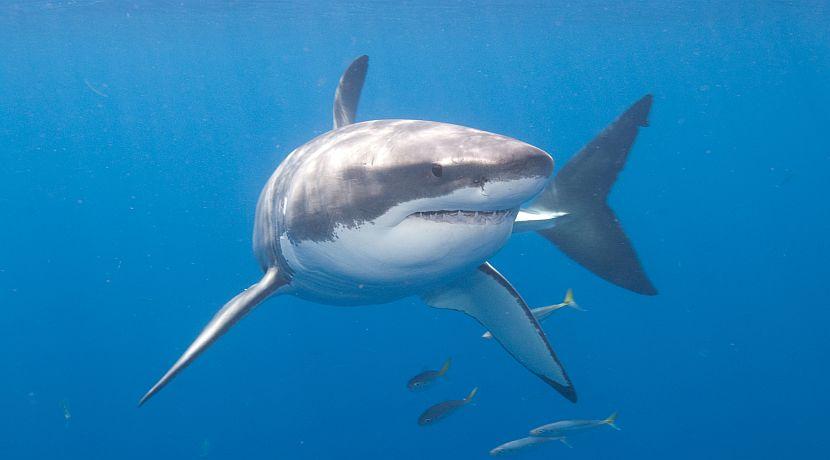Great White Sharks are one of the most well-known and, thanks to films like Jaws, feared animals on Earth. These fears are often unfounded as around the world, cows kill more people than humans each year! So with that in mind, we wanted to clear the waters around the Great White and tell you our top 5 Great White Shark Facts!

How many teeth do Great White Sharks have?
These sharks are apex predators for a reason and this is never more evident than when you take a look in their mouths (which we don’t recommend.) They are equipped with a set of 300 razor sharp teeth arranged in up to seven rows, and these teeth can even grow back so don’t try arguing with one.
What do Great White’s eat?
When they are younger these fish will feast on smaller prey such as other fish and rays, but when they grow to full size they will dine on sea mammals such as sea lions, seals, and other smaller sharks.
How big can they get?
As the biggest predatory fish in the ocean the answer is quite! Great whites can reach lengths of around 4.6 meters on average, but some have been known to be 6 meters long. That is half the length of a bus, so you can see why they rule the seas.
How do they hunt?

The Great White Shark begins its hunt by utilising its incredible sense of smell. They can sniff out a colony of seals from over two miles away, and their nose is so impressive that if you placed one drop of blood in 100 litres of water they would be able to smell it! Once they have located their prey they use the technique of breaching to finish off the unsuspecting animal victim. This involves positioning themselves underneath their prey, swimming up and chomping down. Once this happens it is very unlikely that the shark is going to lose this battle.
Are they in danger?
Great Whites may be at the top of the food chain, but the threat which is facing them is coming from outside of their marine world. Human activity is what is causing the shark populations to suffer. The threats facing them include illegal hunting, overfishing, and pollution and if this continues then we will see fewer and fewer of these magnificent beasts in our oceans.
If you do want to see these incredible animals up close and personal whilst aiding in shark conservation efforts then take a look at The Great White Shark Project in South Africa. You can help make a difference to the lives of these imposing beasts!














